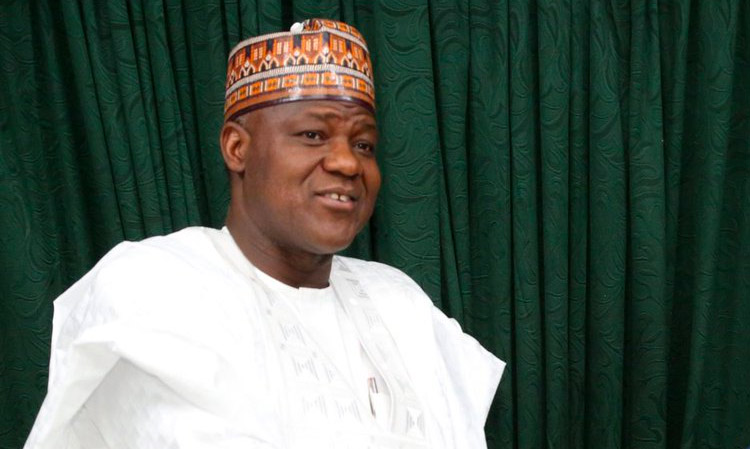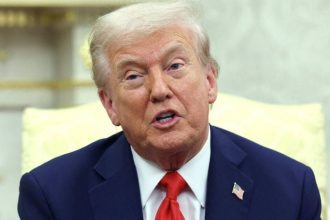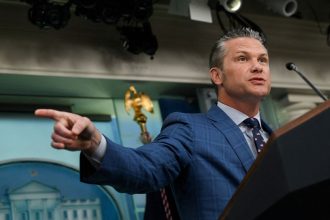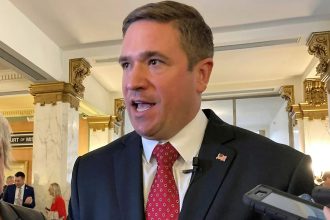Former Speaker of the House of Representatives, Yakubu Dogara, has hailed President Bola Tinubu’s sweeping tax reforms as the most ambitious overhaul of Nigeria’s fiscal framework in decades, predicting that the President will be remembered as the country’s foremost economic reformer.
Dogara made the remarks on Tuesday while delivering the maiden Distinguished Parliamentarian Lecture organised by the House of Representatives Press Corps at the National Assembly Complex, Abuja.
His lecture, titled “Navigating Tax Reform in Nigeria: Insights on President Tinubu’s Policies”, examined the origins, scope, and expected impact of the reforms encapsulated in the Nigeria Tax Act 2025 and related legislation.
He noted that Tinubu inherited a troubled economy riddled with “economic debris,” including excessive deficit financing through Ways and Means, dual exchange rates that enriched a few at the expense of many, and crude oil forward sales tied to foreign loans.
“By the time President Tinubu took office, N22.7tn had been printed and injected into the economy, destroying the value of the naira. Some anointed people were making hundreds of millions off forex allocations without producing any goods or services whatsoever,” Dogara said.
According to him, these distortions made urgent reforms inevitable.
“From day one, it was clear that something urgent, nay revolutionary, must be done to prevent our economy from imploding,” he stressed, commending the President’s courage in driving the reforms despite opposition.
Dogara highlighted key provisions of the reform package, which consolidates 16 federal tax statutes into four principal laws: the Nigeria Tax Act 2025, the Nigeria Tax Administration Act 2025, the Nigeria Revenue Service (Establishment) Act 2025, and the Joint Revenue Board (Establishment) Act 2025.
The laws, expected to take effect in January 2026, will simplify Nigeria’s tax regime, broaden the tax net, and align fiscal rules with global standards.
Citing the report of the Presidential Committee on Fiscal Policy and Tax Reform chaired by Taiwo Oyedele, Dogara said the reforms were designed to “protect the poor, empower businesses, encourage investment, and ensure fairness across society.”
Among the reliefs, he noted, are exemptions for small companies with a turnover of N100m or less, rent reliefs for salaried workers, and full income tax exemption for individuals earning N800,000 or less annually.
He also clarified concerns about a five per cent fuel surcharge, saying it was not a new tax but an existing provision under the Federal Roads Maintenance Agency Act, 2007.
“This safeguard eliminates recklessness and ensures timing and economic conditions are carefully considered,” he explained.
While applauding the reforms, Dogara warned of challenges with interpretation, digital readiness, and compliance costs.
“True tax reform is not about raising rates, but about raising trust. When citizens can see where their naira goes, they are proud to give it,” he said, urging government to channel revenues into infrastructure, healthcare, and education.
“This is a legacy that would impact generations after us and cement President Tinubu’s place in Nigeria’s history as the undisputed most consequential economic reformer of our time,” he added.
Also speaking at the event, Speaker of the House of Representatives, Tajudeen Abbas, described the reforms as a decisive step toward fairness and efficiency. Represented by the House Spokesperson, Akin Rotimi, he said:
“Indeed, what we now have before us is one of the most significant steps of building our Fourth Republic, with the greatest potential to transform our economy and fiscal institutions.”
Other stakeholders, including the Federal Inland Revenue Service, the Civil Society Legislative Advocacy Centre, lawmakers, and the Nigeria Union of Journalists, echoed calls for transparency, accountability, and effective communication to build public trust in the reforms.
Chairman of the House of Representatives Press Corps, Gboyega Onadiran, said the lecture was designed to demystify Tinubu’s tax reform agenda and clarify issues for Nigerians. Organising Committee Chairman, Philip Nyiam, added that the initiative marked a new chapter for parliamentary reporting by positioning journalists as “agenda setters and contributors to national development.”









